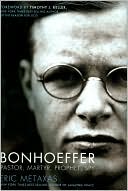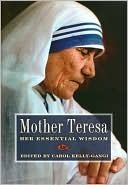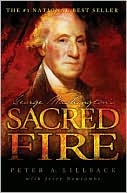An Altar in the World: A Geography of Faith
In her critically acclaimed Leaving Church ("a beautiful, absorbing memoir"—The Dallas Morning News), Barbara Brown Taylor wrote about her experience leaving full-time ministryto become a professor, a decision that stretched the boundaries of her faith. Now, in her stunning follow-up, An Altar in the World, she shares how she learned to encounter God far beyond the walls of the church.\ Taylor reveals meaningful ways to discover the sacred in the small things we do and see, from simple...
Search in google:
In her critically acclaimed Leaving Church ("a beautiful, absorbing memoir." Dallas Morning News), Barbara Brown Taylor wrote about leaving full-time ministry to become a professor, a decision that stretched the boundaries of her faith. Now, in her stunning follow-up, An Altar in the World, she shares how she learned to encounter God beyond the walls of any church.From simple practices such as walking, working, and getting lost to deep meditations on topics like prayer and pronouncing blessings, Taylor reveals concrete ways to discover the sacred in the small things we do and see. Something as ordinary as hanging clothes on a clothesline becomes an act of devotion if we pay attention to what we are doing and take time to attend to the sights, smells, and sounds around us. Making eye contact with the cashier at the grocery store becomes a moment of true human connection. Allowing yourself to get lost leads to new discoveries. Under Taylor's expert guidance, we come... Publishers Weekly Author of an acclaimed memoir (Leaving Church) and a gifted preacher, Taylor is one of those rare people who truly can see the holy in everything. Since everyone should know such a person, those who don't can-no, must-read this book, with its friendly reminders of everyday sacred. Taylor's 12 chapters mine the potentially sacred meaning of simple daily activities and conditions, like walking, paying attention, saying no to work one Sabbath day each week. Hanging laundry is setting up a prayer flag, for God's sake. Since Taylor, an Episcopal priest, no longer pastors a church, she can "do church" everywhere: in line at the grocery store interacting with the cashier, walking a moonlit path with her husband. Her candor is another of the book's virtues: she is a failure at prayer, and cannot explain why or how it is, or isn't, answered ("I do not know any way to talk about answered prayer without sounding like a huckster or a honeymooner"). Savor this book. (Feb.)Copyright © Reed Business Information, a division of Reed Elsevier Inc. All rights reserved.
An Altar in the World\ Chapter One\ The Practice of Waking Up to God\ Vision\ \ The day of my spiritual awakening was the day I saw—and knew I saw—all things in God and God in all things.\ —Mechtild of Magdeburg\ \ Many years ago now I went for a long walk on the big island of Hawaii, using an old trail that runs along the lava cliffs at the edge of the sea. More than once the waves drenched me, slamming into the cliffs and shooting twenty feet into the air. More than once I saw double rainbows in the drops that fell back into the sea. The island had already won my heart. Part of it was the sheer gorgeousness of the place, but the ground also felt different under my feet. I was aware of how young it was: the newest earth on the face of the earth, with a nearby volcano still making new earth even as I walked. In my experience, every place has its own spirit, its own character and depth. If I had grown up in the Arizona desert, I would be a different person than the one who grew up in a leafy suburb of Atlanta. If I lived by the ocean even now, my senses would be tuned to an entirely different key than the one I use in the foothills of the Appalachians.\ On the big island of Hawaii, I could feel the adolescent energy of the lava rock under my feet. The spirit of that land was ebullient, unrefined, entirely pleased with itself. Its divinity had not yet suffered from the imposition of shopping malls, beach homes, or luxury hotels. I caught its youthfulness and walked farther that day than I thought I could, ending up at a small tidal pool on the far southwestern tip of the island.\ After thecrashing of the waves, the sanctuary of the still pool hit me with the sound of sheer silence. The calm water lay so green and cool before me that it calmed me too. Nothing stirred the face of the water save the breeze coming off the ocean, which caused it to wrinkle from time to time. Walking around the pool, I came to three stones set upright near the edge where the water was deepest. All three were shaped like fat baguettes, with the tallest one in the middle. The other two were set snug up against it, the same grey color as humpbacked whales. All together, they announced that something significant had happened in that place. I was not the first person to be affected by it. Whoever had come before me had set up an altar, and though I might never know what that person had encountered there, I knew the name of the place: Bethel, House of God.\ At least that is what Jacob called the place where he encountered God—not on a gorgeous island but in a rocky wilderness—where he saw something that changed his life forever. The first time I read Jacob's story in the Bible, I knew it was true whether it ever happened or not. There he was, still a young man, running away from home because his whole screwy family had finally imploded. His father was dying. He and his twin brother, Esau, had both wanted their father's blessing. Jacob's mother had colluded with him to get it, and though his scheme worked, it enraged his brother to the point that Jacob fled for his life. He and his brother were not identical twins. Esau could have squashed him like a bug. So Jacob left with little more than the clothes on his back, and when he had walked as far as he could, he looked around for a stone he could use for a pillow.\ When he had found one the right size, Jacob lay down to sleep, turning his cheek against the stone that was still warm from the sun. Maybe the dream was in the stone, or maybe it fell out of the sky. Wherever the dream came from, it was vivid: a ladder set up on the earth, with the top of it reaching to heaven and the angels of God ascending and descending it like bright-winged ants. Then, all of a sudden, God was there beside Jacob, without a single trumpet for warning, promising him safety, children, land. "Remember, I am with you," God said to him. "I will not leave you until I have done what I have promised you."\ Jacob woke while God's breath was still stirring the air, although he saw nothing out of the ordinary around him: same wilderness, same rocks, same sand. If someone had held a mirror in front of his face, Jacob would not have seen anything different there either, except for the circles of surprise in his eyes. "Surely the Lord is in this place," he said out loud, "—and I did not know it!" Shaken by what he had seen, he could not seem to stop talking. "How awesome is this place!" he went on. "This is none other than the house of God, and this is the gate of heaven."1\ It was one of those dreams he could not have made up. It was one of those dreams that is so much more real than what ordinarily passes for real that trying to figure out "what really happened" involves a complete re-definition of terms. What is really real? How do you know? Can you prove it? Even if Jacob could never find the exact place where the feet of that heavenly ladder came to earth—even if he could never find a single angel footprint in the sand—his life was changed for good. Having woken up to God, he would never be able to go to sleep again, at least not to the divine presence that had promised to be with him whether he could see it or not. What really happened? God knows. All Jacob knew was that he had to mark the spot.\ An Altar in the World. Copyright (c) by Barbara Brown Taylor . Reprinted by permission of HarperCollins Publishers, Inc. All rights reserved. Available now wherever books are sold.
\ From Barnes & NobleA Selection of Barnes & Noble Recommends\ "Holy troublemaker" Barbara Brown Taylor offers comforting guidance for those who seek to lead spiritually rich lives outside church walls.\ \ For many people, authentic spiritual experience and practice doesn't begin or end inside the walls of a church, synagogue, or mosque. Barbara Brown Taylor's An Altar in the World serves as a beacon and counsel for those "unchurched" faithful who see themselves not as religious, but as spiritual. In this evocative, wise book, the author of Leaving Church describes how she learned to encounter the God who does not live in the church. An exploration that is both memoir and spiritual guide.\ \ \ \ \ Phyllis Tickle"This is the most completely beautiful book in religion that I have read in a very long time. Gentle, humbly crafted, lyrical, and deeply wise, Altar is Barbara Brown Taylor as she was meant to be, a pastor who understands that knowing God occurs in a place beyond theology."\ \ \ Kate Campbell"This book is the most practical but everyday mystical book I have read on spiritual practices."\ \ \ \ \ Marcus Borg"Elegant, wise, and insightful, this book is also sacramental: it mediates the life it describes."\ \ \ \ \ Nora Gallagher"An Altar in the World is about how faith can be both practical and sensuous.In Barbara Brown Taylor’s hands, the old division between heaven and earth is healed and both come alive. Your mind, your body and your soul will be well fed by this wonderful book."\ \ \ \ \ Christian Science Monitor"While I don’t like long books, this one could have been 500 pages longer with no complaints from me."\ \ \ \ \ Read the Spirit"…[H]er honest elegance... express[es] truths that throw open windows in our everyday livesallowing fresh perspectives on life. You’ll finish her book with dozens of pages folded over or marked in some other fashion so you can find and re-read favorite lines again."\ \ \ \ \ Dallas Morning News"Leaving Church settled it for me that Taylor, as thinker and stylist, ranks with the best. The new book confirms that. . . . This book is not a page-turner. It’s a page-lingerer. I wore out a highlighter marking passages I want to read again."\ \ \ \ \ The Congregationalist"Barbara Brown Taylor penetrates the religious clutter. She comforts. She revives our spirits. With lovely words she finds ‘alters in our world.’"\ \ \ \ \ ChristianityToday.com"Overall… if one can read Taylor’s insights reflectively, with an eye toward Scripture, Altar will serve as a refreshing reminder that the physical world is designed to help us experience the spiritual one."\ \ \ \ \ ExploreFaith"A marvelous book. Barbara Brown Taylor’s honesty is so fantastic, and she writes with such wit, that this book is a delight to read and a profound experience ."\ \ \ \ \ National Catholic Reporter"Taylor’s spiritual reflections are original, bringing fresh air to her topics because her spirituality is steeped in everyday life while illuminated by the ancient Christian spiritual tradition."\ \ \ \ \ Atlanta Journal-Constitution"Taylor serves up beefy soul food.. . . Though she did not write the book to speak to the economic crash, those suffering from lost jobs, homes and status will find plenty to feed thought and faith."\ \ \ \ \ America Magazine"An Altar in the World is a delight to the eyes, mind and heart, a book I will certainly return to again at a later time, if only to remind myself of the spirituality of everyday living."\ \ \ \ \ U.S. Catholic"Without denigrating altars in churches, Brown helps us discover and honor all the ‘altars in the world’—the red Xs that mark the spot, but that we cannot see because we are standing on them. She does so with a depth that readers will appreciate and savor."\ \ \ \ \ Kansas City Star"The author seems simply incapable of writing a bad book. . . . Taylor is a great gift to the Christian church. And this volume, which focuses on spiritual practices, simply adds to her growing reputation."\ \ \ \ \ Raleigh News and Observer"Barbara Brown Taylor is a favorite among church members who struggle to connect the sacred and secular, the heavenly and the earthly. These readers appreciate the candor with which she writes about it."\ \ \ \ \ Booklist"[A] lovely book. One of the best-known preachers in the country offers equal amounts of wisdom and erudition spent longing for more meaning, more feeling, more connection."\ \ \ \ \ Publishers WeeklyAuthor of an acclaimed memoir (Leaving Church) and a gifted preacher, Taylor is one of those rare people who truly can see the holy in everything. Since everyone should know such a person, those who don't can-no, must-read this book, with its friendly reminders of everyday sacred. Taylor's 12 chapters mine the potentially sacred meaning of simple daily activities and conditions, like walking, paying attention, saying no to work one Sabbath day each week. Hanging laundry is setting up a prayer flag, for God's sake. Since Taylor, an Episcopal priest, no longer pastors a church, she can "do church" everywhere: in line at the grocery store interacting with the cashier, walking a moonlit path with her husband. Her candor is another of the book's virtues: she is a failure at prayer, and cannot explain why or how it is, or isn't, answered ("I do not know any way to talk about answered prayer without sounding like a huckster or a honeymooner"). Savor this book. (Feb.)\ Copyright © Reed Business Information, a division of Reed Elsevier Inc. All rights reserved.\ \ \ \ \ Library JournalTaylor (Piedmont Coll. & Columbia Theological Seminary; Leaving Church) has written a winning book that balances memoir and spiritual guide. Acknowledging that many see themselves not as "religious" but as "spiritual," Taylor offers a journey through forms of spirituality that can be found and celebrated outside conventional religious or churchly practice, e.g., walking, housework, and pronouncing blessings. As evinced by the success of her earlier work, she writes fluently, with an eye and ear for the striking image and memorable phrase. Many readers, especially the vast numbers of the "unchurched" but "spiritual," will find support and useful counsel. For most collections.\ \ —Graham Christian\ \








